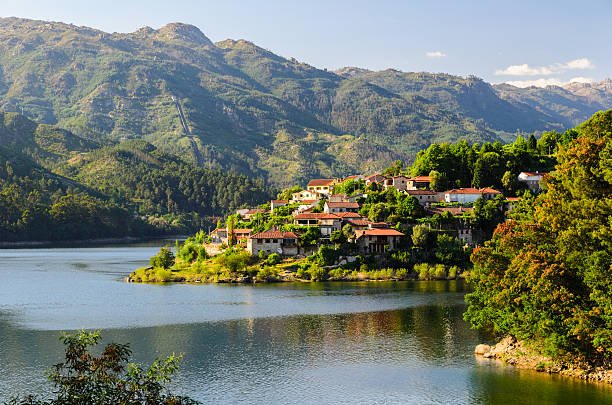Portugal rises to become the 7th safest country in the World, according to the 2025 Global Peace Index
Portugal has officially secured its place among the world’s most peaceful nations, climbing one spot to rank 7th in the 2025 Global Peace Index (GPI). This marks a continued trend of improvement for the country, which has consistently moved upwards in the rankings over the past few years.

The Institute for Economics & Peace (IEP), the organization behind the Global Peace Index, highlighted that Portugal’s steady return to the top 10 reflects ongoing improvements in public perceptions of crime and political stability. The IEP emphasized that Portugal’s rise from 8th to 7th place in 2025 underlines the country’s sustained investment in internal security and social development.
According to the latest report, Portugal achieved a total peace score of 1.371, ranking just behind countries such as Iceland (1st), Ireland (2nd), New Zealand (3rd), Austria (4th), Switzerland (5th), and Singapore (6th).
Top 10 most peaceful Countries in 2025
The 2025 Global Peace Index lists the following countries as the ten safest in the world:
- Iceland – Maintains its leading position since 2024
- Ireland – Holds steady in 2nd place
- New Zealand – Climbs two positions
- Austria – Drops one place
- Switzerland – Slips down one spot
- Singapore – Keeps its previous rank
- Portugal – Moves up from 8th to 7th
- Denmark – Falls one spot
- Slovenia – Maintains its 2024 rank
- Finland – Advances one position
Rising global instability amid Portugal’s progress
While Portugal celebrates a notable improvement, the broader findings of the 19th edition of the GPI paint a more troubling global picture. The index, which assesses 163 countries and territories covering 99.7% of the global population, reports a continuing decline in global peacefulness.
The study warns that several major indicators of impending conflict are now at their highest levels since World War II. Among the alarming findings:
- 59 active conflicts are currently ongoing between nations – the highest number since WWII.
- 17 countries recorded over 1,000 conflict-related deaths in the past year alone.
- Successful conflict resolution is at its lowest point in five decades.
- Peaceful outcomes, such as negotiated agreements, have plummeted from 23% in the 1970s to just 4% today.
- Only 9% of conflicts are now resolved with decisive victories, compared to 49% in the 1970s.


Geopolitical Tensions and Rising Militarization
Another concern highlighted by the IEP is the increasing internationalization of conflicts. Currently, 78 countries are involved in hostilities beyond their own borders. The report attributes this to rising geopolitical fragmentation, intensifying power struggles among global and regional powers, and the resurgence of mid-tier nations asserting influence in their regions.
The trend of demilitarization, observed over the past two decades, has also reversed. Over the past two years, 106 countries have recorded setbacks in this domain, signaling a renewed emphasis on military build-up amid global instability.
At the bottom of the 2025 rankings are Russia, Ukraine, Sudan, Democratic Republic of Congo, Yemen, and Afghanistan — countries heavily impacted by armed conflict and political unrest.
Portugal stands out in a troubled world
Despite global tensions and deteriorating peace indicators, Portugal’s ascent to the 7th position in the Global Peace Index is a testament to its commitment to peace, safety, and governance. As much of the world grapples with uncertainty and escalating violence, Portugal serves as a powerful example of how strategic investment in internal stability and societal well-being can lead to meaningful progress.